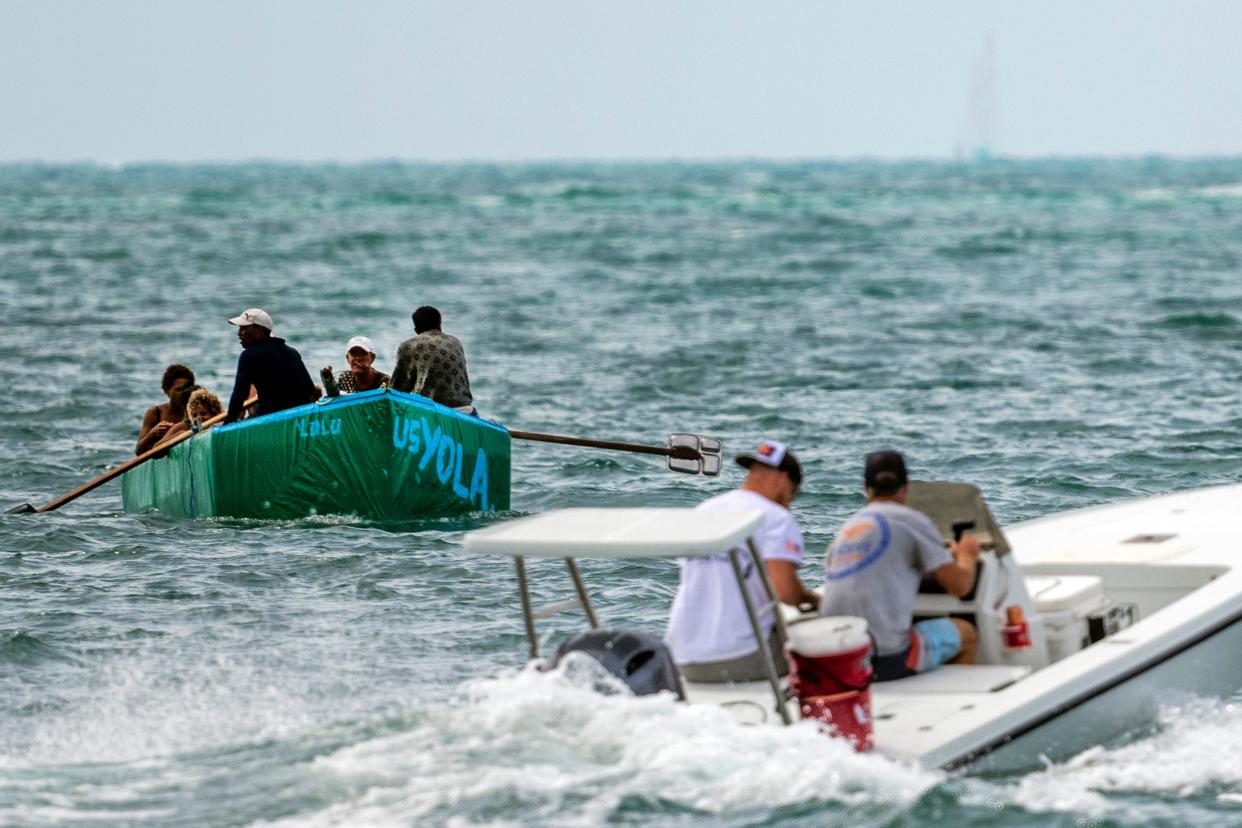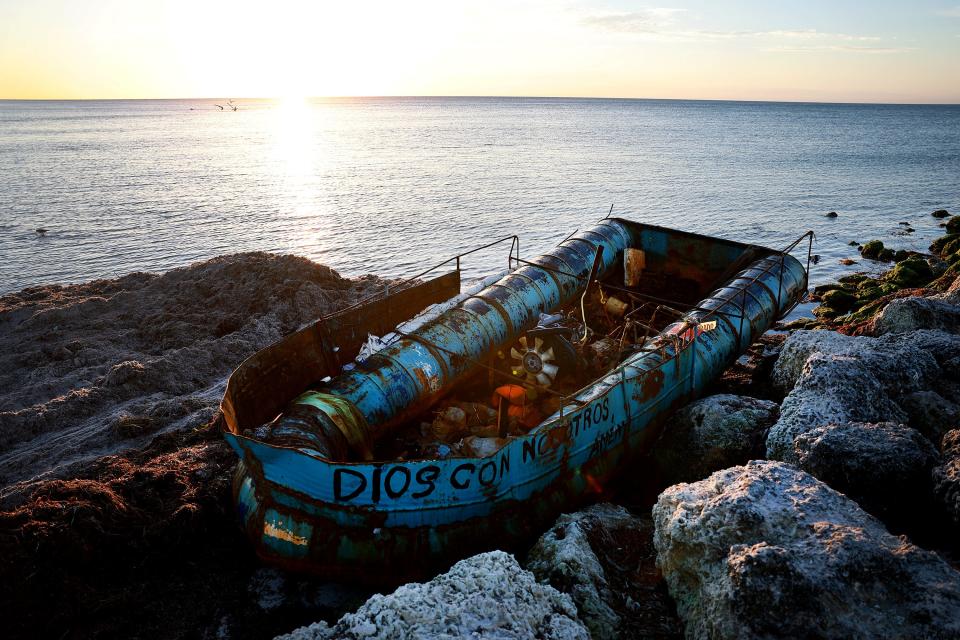2 arrested after a boat that ran out of fuel in Florida had 23 Cuban migrants aboard

Two Florida men who were found aboard a boat that stalled in the ocean with nearly two-dozen Cuban migrant stowaways were arrested this week on human-smuggling charges, authorities announced.
Oreste Carvajal Gonzalez, 33, of Miami-Dade County, and Roberto Carlos Medina Moreno, 19, of Lakewood, were both charged with 23 counts of smuggling, the Monroe County Sheriff's Office announced Thursday.
The men's arrests comes amid a growing crisis as migrants fleeing economic hardship on the island attempt to enter into the country.
Migrants: Texas Gov. Abbott installing buoy barrier along Rio Grande; opponents decry 'dangerous stunt'
Authorities encountered a go-fast vessel on July 21 that had run out of fuel on waters near Marathon in the Florida Keys. Gonzalez and Moreno were both aboard the small, narrow boat, along with 23 Cuban migrants, the sheriff's office said.
The vessel was known to the Monroe County Sheriff’s Office from previous interactions with law enforcement as a suspected migrant smuggling vessel, the agency said.
The U.S. Coast Guard, U.S. Customs and Border Protection, U.S. Border Patrol, and U.S. Homeland Security Investigations were also among the agencies involved in the operation.
It was not immediately clear what became of the Cuban migrants. USA TODAY reached a sheriff's spokesman Friday morning, who referred the question to federal agencies.

Thousands of Cubans have sought asylum in the U.S.
The island's economic collapse has driven thousands of Cubans to flee to the United States, where they seek asylum. In the the past year, 305,000 Cubans crossed the U.S.-Mexico border, nearly 3% of the island’s population, according to U.S. Customs and Border Protection.
"Off the grid:" Decomposed bodies found in remote Colorado campsite belonged to trio living "off the grid"
In January, the National Park Service closed the Dry Tortugas National Park 70 miles west of Key West for several days when 500 migrants landed along the Florida Keys. The influx also prompted Florida Gov. Ron DeSantis to mobilize the state national guard to help law enforcement and medical personnel to evaluate the migrants before transporting them to Key West.
Originally, Cubans were exempt from Title 42, the pandemic-era law that allowed border patrol to return migrants from six countries into Mexico without a formal deportation process, due to public health concerns. But in January, President Joe Biden signed an executive order effectively ending this exemption and blocking Cubans from entering the United States.
It's part of a Biden-administration clamp-down this year on the number of migrants seeking asylum at the U.S.-Mexico border. However, the White House's policy to require migrants heading to the U.S. border to first seek protection in Mexico before attempting to cross was dealt a major blow this week when a federal judge in California struck it down.
The Department of Justice filed a notice that it planned to appeal the decision.
Eric Lagatta covers breaking and trending news for USA TODAY. Reach him at elagatta@gannett.com and follow him on Twitter @EricLagatta.
This article originally appeared on USA TODAY: Two arrested in Florida for smuggling 23 Cuban migrants on, police say

